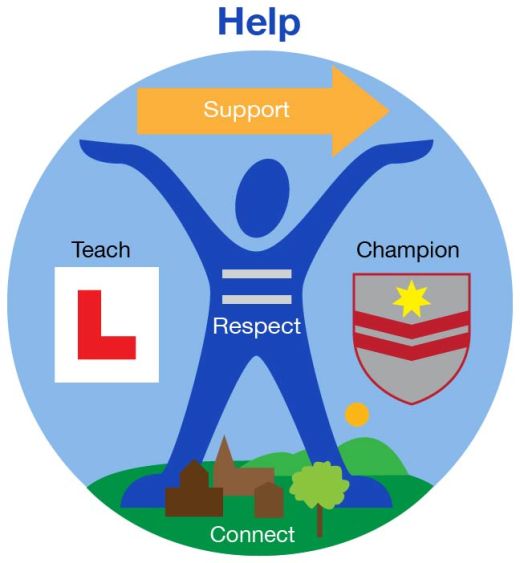People with learning disabilities often get help that isn't very helpful. Wendy Perez explains what help really means.
Author: Wendy Perez
Everybody needs help, but some people need more help than others. People with learning disabilities often get help that isn't very helpful. Too often people assume that people can't do things for themselves or that they can't learn how to do things.
In Citizenship for All - the new accessible guide - Wendy Perez and Simon Duffy explore what real help looks like:

1. Try each other out - It is really difficult to be supported by the wrong person; so try each other out for a few weeks. Don't get stuck in a bad rut; it won't do any one any good.
2. It's team work - Getting help is about working together as a team, with trust. People shouldn't talk behind each other's back or break confidences. Instead you should work together to get ready to do the best in any situation.
3. Don't take over - Let people try things for themselves, even if they make mistakes - be there for them - help people only when it's really needed. Good help encourages independence and pushes people past their limits.
4. Pay attention - Listen, watch and ask. Good help takes lots of communication and effort. Don't be scared. You can't always get it right.
5. Don't assume - You've both got rights, but if you are the helper then you've got to remember that its the person's life, their values and what's important to them, that matters most. Don't use you views to pressure the other person.
6. Believe in the person - The person you are helping is a person, they can succeed - believe in them - give them a chance. If you are only doing what you are doing just for the money then stop - get out - because you won't be doing anyone any favours.
7. Don't get in the way - The helper shouldn't stop the person forming relationships in work, in the community or with their family. The best help just comes in and out when needed.
9. Let relationships develop naturally - Help isn't friendship, but sometimes it can turn into friendship or even more. You mustn't force this, it must happen naturally; you can nurture it, but don't force it.
9. Stick up for each other - Good help sometimes means you have to stick up for each other, help the person make changes in their life or speak out for themselves.
10. Sticking with it - Sometimes things get tricky and rocky. You need to stick together through the good and the bad times.
The publisher is the Centre for Welfare Reform.
Help - What It Really Means © Wendy Perez 2014.
All Rights Reserved. No part of this paper may be reproduced in any form without permission from the publisher except for the quotation of brief passages in reviews.
community, intellectual disabilities, social care, England, Article